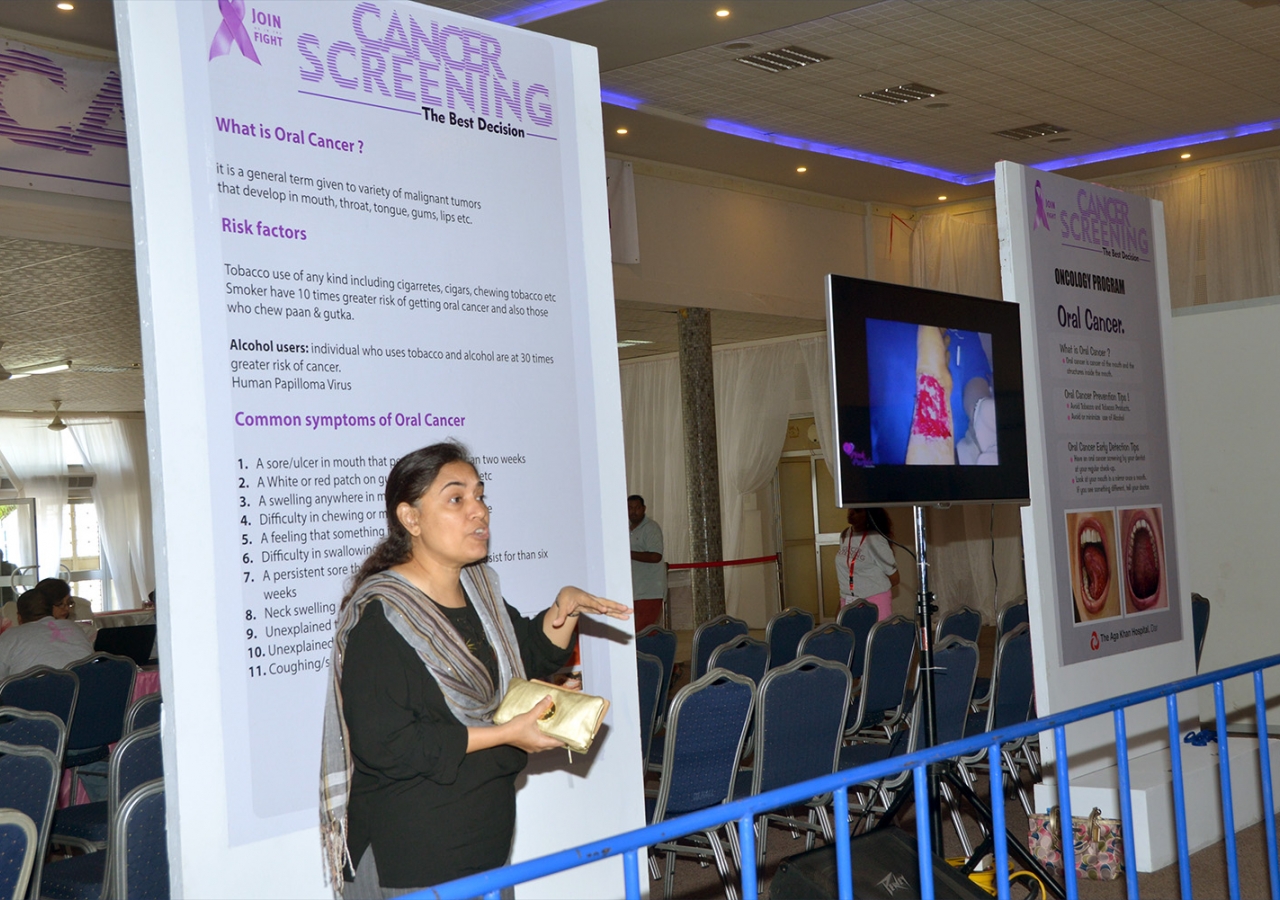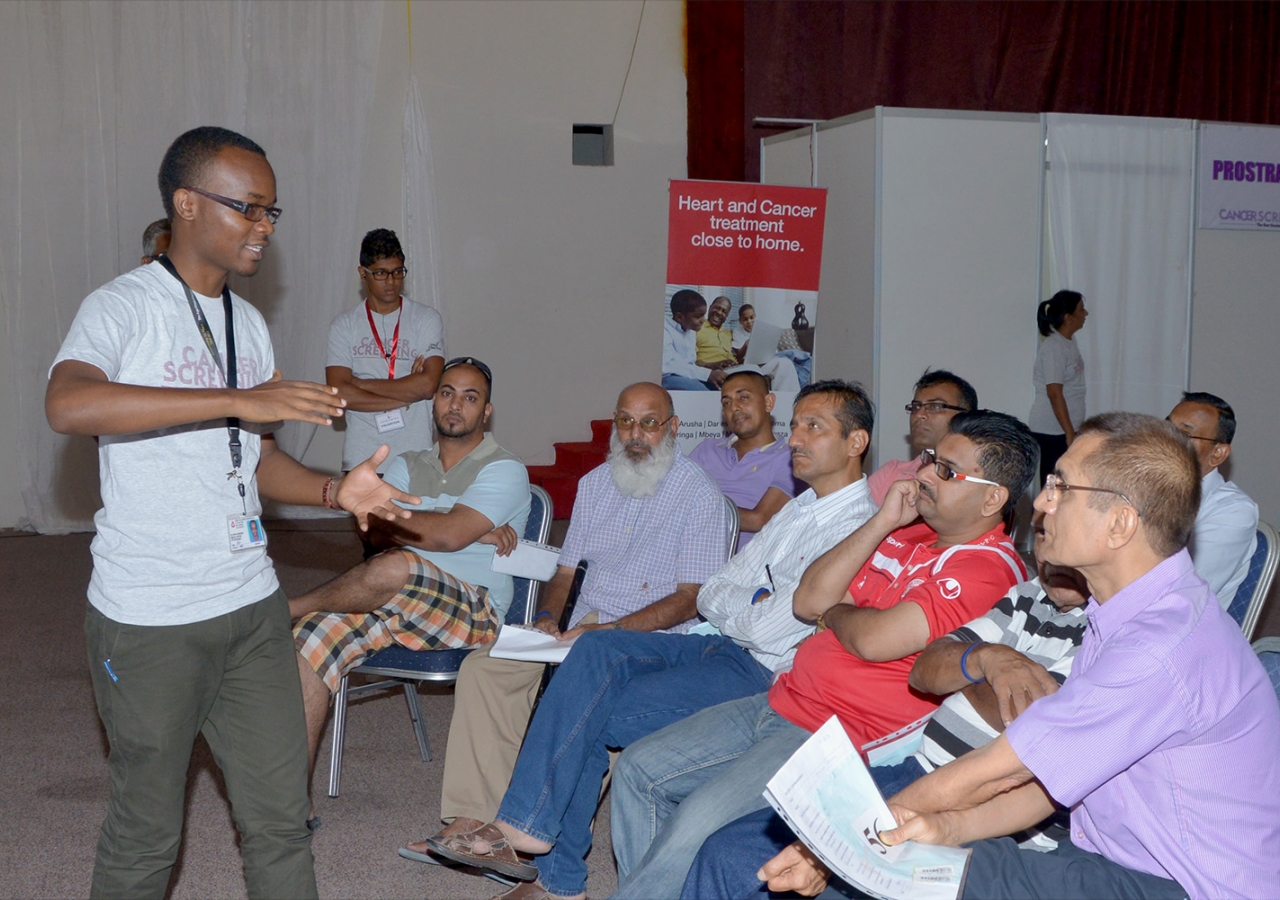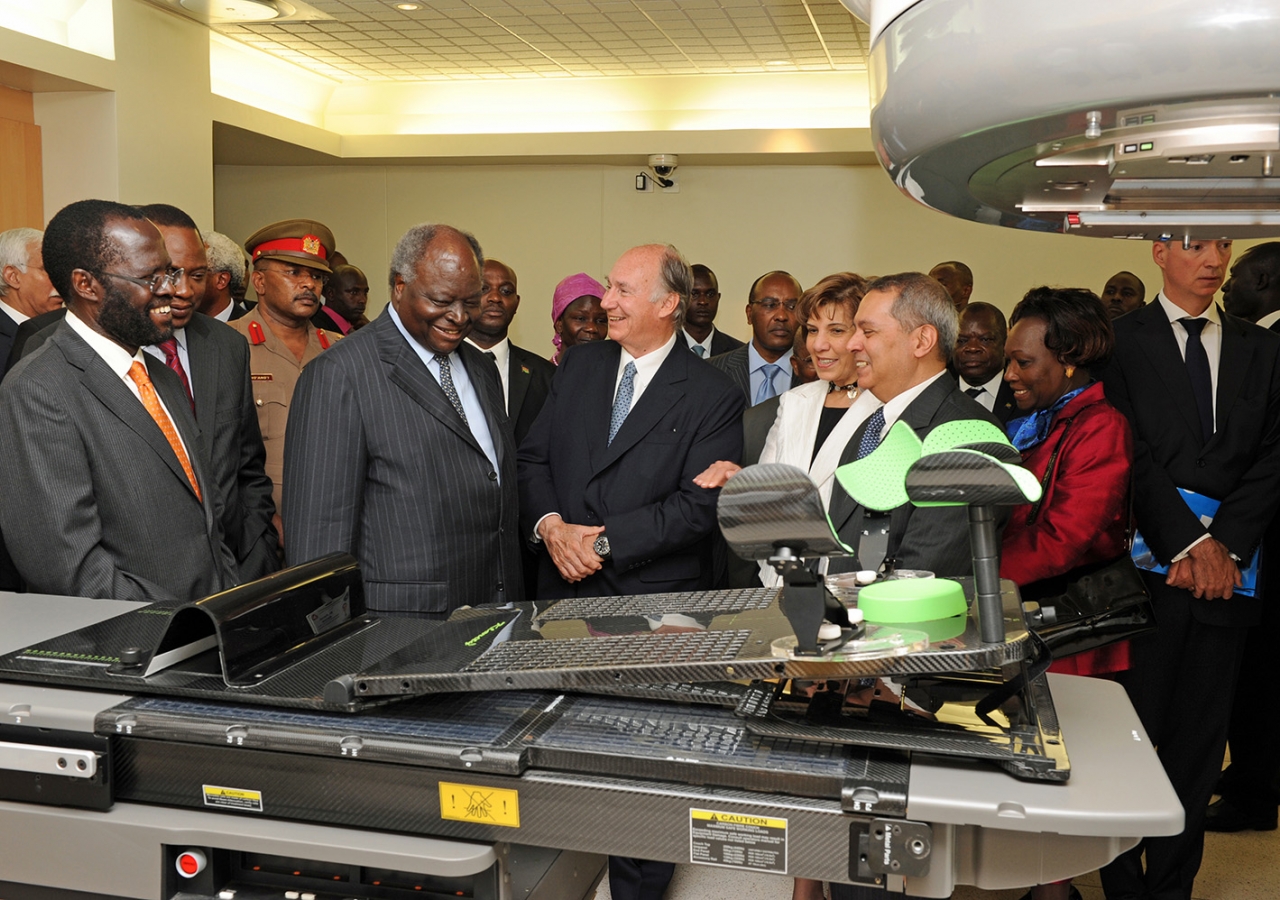The Diamond Jubilee Hall in Dar es Salaam often hosts celebrations, but the setup of registration desks, medical exam stations and information foretold a very different type of event. For the first time in Tanzania, all Jamati members were being invited to undergo cancer screening.
Although the Aga Khan Health Service in Tanzania regularly holds breast cancer screenings for the general public, this was the first time that an event had been organised specifically for the Ismaili community.
“I strongly believe that the Jamat has begun to understand the importance of regular screenings,” says Nimtaz Giga, one of of 150 volunteers that helped organise the screening camp. “The cancer screening camp was a partnership activity led by the Jamati Health Committee and Aga Khan Health Service, Tanzania in collaboration with Aga Khan University Hospital, Nairobi and the Ismaili Health Professionals Association,” she says.
Although blood sugar and blood pressure checkups are organised regularly by the Jamati Health Committee, Nimtaz says that in 2014 they wanted to take the screening a step further to focus on “prevention and screening of non-communicable diseases” and the “importance of regular check ups and early detection.”
“This initiative has definitely opened a door for [the Jamat] to access such services,” she says.
Participants were taught about non-communicable diseases (NCDs), which kill more than 36 million people around the world each year, according to the World Health Organization. About 80 per cent of these deaths occur in low and middle-income countries. NCDs include cardiovascular diseases, chronic respiratory diseases and diabetes, as well as cancer. Early detection of various types of cancers can improve the chance of survival.
Previously when an individual was diagnosed with cancer or heart disease, the options for treatment in East Africa were limited. Very likely, they would have to seek additional health services abroad.
But this is changing. Over the last 15 years the health footprint of Aga Khan University has grown significantly in East Africa. New facilities like the Heart and Cancer Centre at the Aga Khan University Hospital in Nairobi as well as medical and diagnostic centres in Kenya, Tanzania and Uganda are making advanced health services accessible to people in the region.
The Heart and Cancer Centre makes it possible to deliver an international standard of care and treatment in cardiology and oncology. But quality care is not simply a matter of buildings and equipment, it also requires highly trained nurses, doctors and specialists.
Here is where the university truly shines. Over the past decade-and-a-half, 1,900 nurses have been educated at the Aga Khan University in Kenya, Tanzania and Uganda. Some 840 of them have a Bachelor of Science in Nursing — a qualification that is in great demand in the region, yet short in supply. AKU also has established nine postgraduate medical residencies through which it is training specialist doctors in fields such as pediatrics, obstetrics and gynaecology, family medicine and surgery.
Addressing the AKU 2015 Convocation in Kampala on Thursday, Mawlana Hazar Imam described the university’s plans for Uganda. Here, “we will focus on achieving international levels of healthcare,” said Hazar Imam, “especially for non-communicable diseases, such as cancer, heart disease and diabetes.” He announced plans to establish a new Aga Khan University Hospital in Kampala, together with medical centres elsewhere. The Imam said that the goal “is that no Ugandan should have to leave the country to seek quality medical care.”
“Our commitment to this country in the years ahead is to educate an ever-growing number of medical specialists, nurses and other specialists,” he continued, “who can perform, consistently and impressively, at an international standard.”
Farida Shamsy lives in Uganda and earned her Bachelor of Science in Nursing from the Aga Khan University.
“Being an AKU graduate is a great source of pride and accomplishment for me,” she says. “There is an awareness created within you on your responsibility towards humanity; the importance of giving back to the society what you have been fortunate to receive through your education.”
“Community engagement is a foundation [of the nursing programme at AKU],” says Farida. She is one of many graduates who take their training back to their local communities to improve health conditions and quality of life.
The Aga Khan Health Services in Uganda works with the country’s AKUH Medical Centres to provide cervical cancer screening for Jamati women and prostate cancer screening for older men. They recently completed an outreach camp to the wider community in collaboration with Kibuli Muslim Hospital, which concentrated on diabetes and blood pressure screening.
“Graduates are encouraged to share best practices, to organise their resources and improve the health and conditions of those within their community,” she says.
The ultimate goal of initiatives like the community-based cancer screening camps is to continuously educate on preventive health measures. However, the benefits are not restricted — cancer screening within a community also helps AKU to make a difference in the wider population.
Data gathered from the Jamati screenings gives the university’s oncology department insight into what cancers are most common among those being screened. This information allows them to better respond to needs across the country and region.
The ripple effect can lead to a society that is better equipped to address the growing incidence of NCDs. Widespread education and preventative measures coupled with access to a growing supply of trained professionals who can deliver quality treatment will lead to better health and a higher standard of living throughout the East African region.
Fifteen years from now, the limits on access to health services in East Africa will surely seem a thing of the past.










